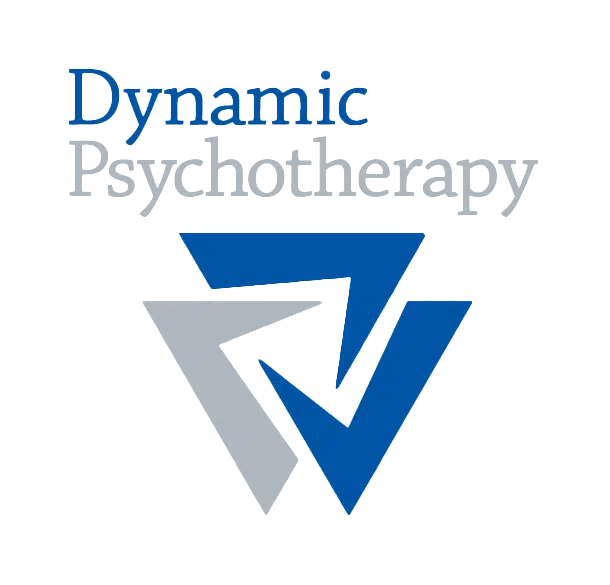While all our therapists are primarily trained (or are in training) in ISTDP, we also use a range of other approaches to help our clients achieve change
The list below summarises some of the most common therapeutic modalities our therapists utilise/have experience in.
Read on to learn more.

EMDR
Eye-Movement Desensitisation and Reprocessing (EMDR) is an evidenced-based, comprehensive psychotherapy for the treatment of psychological distress. EMDR works from the premise that the brain has an innate drive toward mental health; an innate capacity to adaptively process information; and is geared to integrate internal and external experiences; and to resolve psychological disturbance. However, improperly encoded memories of traumatic experiences are thought to disrupt this intrinsic information processing system, in turn preventing healing.
EMDR is thought to access these traumatic memories, where through stimulation of the brain’s innate processing system, they can be linked to adaptive memory networks, thereby allowing the characteristics of the memory to change as it transmutes to an adaptive resolution. In other words, EMDR removes the “blockages” that have been caused by trauma, resuming inherent processing as a result, where maladaptive perceptions, emotions, and sensations are discarded, and adaptive information found in other memory networks are assimilated. In turn, this allows the memory to be stored in a new adaptive form, integrated into the individual’s broader life narrative, where the memory is recalled as a distant event, no longer evoking significant distress.
You can learn more about EMDR on our EMDR therapy page.
– Caspar Wenn, Psychologist
CBT
Cognitive Behavioural Therapy (CBT) is form of psychotherapy that looks at the relationship between thoughts, emotions, and behaviours perpetuating psychological concerns. Core beliefs are viewed as having a direct influence on an individuals thoughts in CBT, and are explored to develop insight into learned beliefs underlying psychological problems. This insight also assists in lending access to an individuals schemas, or “lens” through which individuals view the world, helping to organise and interpret ongoing experiences.
CBT can offer symptom relief relating to psychological problems such as (but not limited to) anxiety and mood related disorders, and substance use problems. More specifically, CBT aims to treat specific problems relating to a mental health disorder through understanding the cognitive (thought) distortions and learned maladaptive behaviours driving the psychological concerns.
Symptoms and associated distress can be reduced through teaching new coping skills and ways of processing information. The acquisition of new coping skills through CBT may allow a person to increase their problem solving skills and develop a greater sense of mastery in ones abilities. Problem solving skills aim to assist the person in developing a greater capacity to recognise their own thought distortions that generate problems and then go on to challenge or revaluate them.
CBT sessions are structured and the agenda for each session is discussed in collaboration with both client and therapist. Tasks that are assigned to the individual between sessions are also decided on collaboratively. This work aims to build mastery of techniques in support of the expressed goals relating to promoting change in existing patterns of thought and behaviour for ongoing symptom relief.
DBT
Dialectical Behaviour Therapy (DBT) aims to improve four specific areas of functioning: emotional regulation, interpersonal skills, distress tolerance, and mindfulness. Increased skills and capacities in these areas tend to led to better functioning for anyone experiencing problems due to a lack of emotional regulation, such as difficulties with impulsivity and distress that can quickly escalate to a severe level including to self-harm, suicidality or acting out in a relationship.
You can learn more about DBT on our DBT Therapy page.
Mindfulness
Mindfulness is being consciously aware of the present moment. Mindfulness based therapy focuses on increasing the client’s awareness of their thoughts, feelings and actions that impede on one’s progress in an open and non-judgemental way. When we can attend to the present moment effectively, we have the power to choose how we act rather than being reactive.
Mindfulness-based interventions have many uses. While not the original purpose of mindfulness, it is often used for relaxation or to calm a patient in session. It can be used to manage stress, cope better with serious illness or chronic pain and reduce anxiety and depression. Mindfulness may be an effective intervention to use with clients who have limited emotional awareness and insight into their moment-to-moment emotional shifts. With mindfulness an individual can pay attention and improve their awareness of their emotions and reactions, which in turn, helps an individual to manage more difficult emotions and situations.
Mindfulness when practiced effectively can lead to many benefits including improved emotion regulation, decreased reactivity and increased response flexibility, interpersonal benefits including better communication and intrapersonal benefits including greater control of thoughts and decreases in rumination, improved feeling of calm, better sleep and increased attention span. Mindfulness is often not enough as an intervention alone to resolve emotional issues so is often used in conjunction with other techniques to resolve psychological problems.
You can learn more about Mindfulness on our Mindfulness therapy page.
– Bronte Eadie
Schema Therapy
Schema Therapy focuses on addressing unmet needs and helps people to break patterns of thinking, feeling, and behaving which are the cause of a person’s suffering. Working through schemas takes place in and outside of session. The therapist will help the person recognise their schemas and problematic coping styles, initially through a series of assessments. The therapist helps strengthen an individual’s ability to identify maladaptive mechanisms and create capacity to replace these with healthy alternatives to mobilise change. Schema Therapy goes further than symptom reduction, aiming to heal adverse early experiences which impact upon an individual’s present life. It has been used to treat personality related disorders, especially borderline personality disorder, anxiety and mood related disorders, and eating disorders.
Schemas are viewed as broad pervasive themes about oneself and relationships with others, which are thought to form during childhood and undergo continued development throughout life. Individuals experiencing psychological problems may harbour any of the 18 schemas due to unmet needs in childhood through to adulthood. The schemas an individual holds can lead to a sense of low self-esteem, disconnection with others, excessive worry, and difficulty expressing true feelings.
The 18 schemas fall into five overarching domains: Disconnection and rejection, impaired autonomy and performance, impaired limits, other directedness and over vigilance and inhibition. Individuals harbouring schemas within any one of these domains may experience difficulty with developing healthy relationships, developing a stable sense of self and functioning in the world, problems with self-control and boundaries, prioritising others needs over their own, and a strong aversion to failure or mistakes.
At Dynamic Psychotherapy we have therapists trained in Schema Therapy, in addition to being in-training in ISTDP. You can learn more about Schema Therapy on our Schema Therapy page.
ACT
Acceptance and Commitment Therapy (ACT) is a mindfulness-based psychotherapy which focuses on the acceptance of painful thoughts and feelings, alongside a commitment to actions which are aligned with a person’s values.
ACT proposes that psychological distress is related to our attempts to control or avoid difficult internal experiences, including emotions, thoughts and physical sensations. ACT suggests that it is not these difficult internal experiences that need to be changed or removed, but the way we relate to them. In this way, ACT supports people to develop practical strategies to accept and let go of negative thoughts and feelings.
ACT also supports people to identify their core values and uses this knowledge to guide and motivate action towards a fulfilling and meaningful life. ACT suggests that it is our deeply held values which should dictate how we live our lives, rather than our reactions to difficult internal experiences.
– Julia Colcott
Interpersonal Therapy
Warmth, empathy, and positive regard are key foundations of Interpersonal Therapy; a brief therapy based on attachment and interpersonal theories tailored for people experiencing depression. As depression not only impacts the individual, but also their relationships, this exacerbates the impact upon mood overall. Essentially, Interpersonal Therapy aims to address both intrapersonal problems (what happens inside the person) and interpersonal problems (what happens in the relationship or communication between people).
Interpersonal therapy identifies four areas where a person may be experiencing relationship problems: grief following the loss of a loved one, conflict in important relationships (including the individual’s relationship with themselves), struggles adapting to shifts in life circumstances or relationships, and problems from social isolation.
Any adaptive and maladaptive patterns of communication which lead to difficulties in current relationships are explored. An individual is equipped to develop realistic expectations when coping with and responding to interpersonal problems, aiming to preserve and increase their social connectedness. The therapist helps the person to increase their social adjustment and alleviate symptoms of depression.
PCIT
Parent-Child Interaction Therapy (PCIT) is a parent-support program that is informed by attachment theory and behaviour principles. PCIT is divided into two phases- the Relationship Enhancement Place and the Additional Skills Phase.
The first phase will focus on developing skills to promote warm and secure relationships. This happens through child-led play, while parents participate in play, observe their child’s experiences, and learn to notice and reflect their child’s emotions and behaviours.
The second phase supports parents to confidently deliver effective instructions to promote cooperation from the child while managing challenging behaviours in the moment.
Prior to commencing each phase, the therapist has a session with the parent to explain the new skills that will be taught and practiced during each phase. PCIT is suitable for children aged two to seven years old.
Request an Appointment
Ready to book now? Use our secure Jotform booking form, and we will get back to you within one business day.
